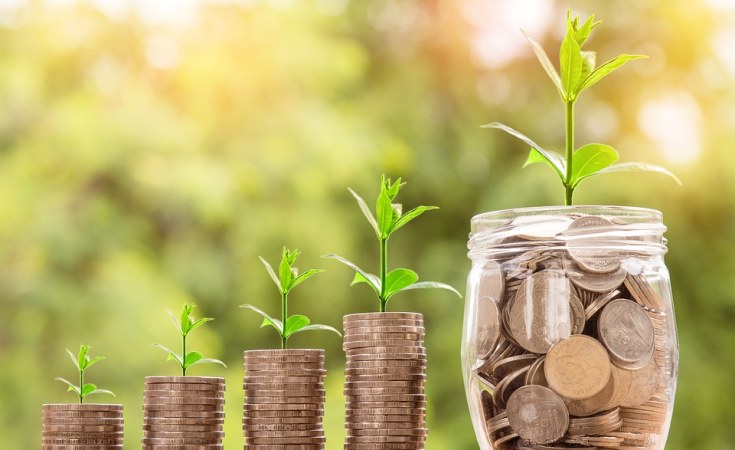Bulawayo — African countries, many reeling under high debt and experiencing economic recession, could benefit from the reallocation of Special Drawing Rights (SDR), financial instruments of the International Monetary Fund (IMF).
SDRs are interest-bearing units of accounts created by the IMF in 1969 to increase the official reserves of member countries. External shocks that have hit the world in the last two years have reversed socioeconomic gains and efforts to protect vulnerable communities in Africa, says Adam Elhiraika, Director of the Macroeconomics and Governance Division at the Economic Commission for Africa (ECA).
Normally, many African countries would get concessional finance, borrow money from the markets or mobilise it domestically - all options the global pandemic has compromised.
The ECA, in collaboration with African ministries, is advocating for the issuance of new SDRs and the re-allocation of existing SDRs to countries most in need.
"We need to reform the G20 Common Framework to make access to international financial markets and debt restructuring effective and inclusive," Elhiraika told IPS in an interview.
He added that: "Africa would benefit from having a permanent seat at the G20 through its African Union, just as European Union and the Organization for Economic Cooperation and Development (OECD) are represented. This will bring the voice of more than one billion people into the G20 processes, including discussions around debt restructuring and inequality of the SDR quota system."
To date, nearly USD 1 trillion US dollars has been allocated by the IMF, including USD 456 billion and SDR equivalent to USD 650 billion, approved in August 2021 to help low and middle-income countries cope with the impact of COVID-19.
According to the United Nation Conference on Trade and Development (UNCTAD), African countries need more than 200 billion USD to counter the socioeconomic impacts of the COVID-19 pandemic.
Excerpts:
IPS: Why is it necessary to reallocate SDRs, and how would this reallocation benefit African countries?
AE: SDR is a supplementary reserve asset which the Board of the IMF unconditionally allocates to all or part of its membership when it determines that there is a need to boost global liquidity. Allocations are based on economic size hence poorer countries receive less than rich countries. For instance, Africa collectively received 5.1 percent of the recent SDR650 allocation. Consequently, while the SDR allocation provided very welcome liquidity to African countries to cope with the pandemic crisis, the considerable financing needs associated with the pandemic and the overlapping crises currently facing Africa (including the climate, food, and energy crises) mean that Africa needs more than its current allocation.
The recent SDR allocation has mostly been used by African countries to bridge their post-COVID liquidity challenges. More specifically, most countries in Sub-Saharan Africa allocated part of their SDR holdings to address their pandemic response or social spending needs. At least 41 Sub-Saharan countries made use of SDRs for various public spending, including vaccine procurement and pandemic relief, ration cards, welfare payments, wages, and budget support.
Further, the median SDR utilization rates of G7 countries are about 5.9 percent, which means that G7 members alone could potentially reallocate $266 billion of SDRs to vulnerable countries. So, recycling/reallocations of the unused SDRs from countries with strong external positions, such as G7 and G20, could provide much-needed and affordable resources to vulnerable African countries.
Already, African countries are constrained by high debt, is tapping SDRs a viable route to affordable financing for economic development and SDGs?
SDR reallocations are made by countries that choose to make their own SDRs available to other countries that need them by lending them to an institution like the IMF. Tapping into SDRs is one of the options for improving Africa's access to affordable external finance.
African ministers have been advocating for an acceleration of the implementation of SDR re-allocation mechanisms aligned with the needs of African economies. This includes considering channelling unused SDRs by G20 through regional banks, such as the African Development Banks, to support the development financing of Africa. Since the interest rates associated with SDR lending are much lower than prevailing market rates, on-lending SDRs via market mechanisms can lower the cost of borrowing and leverage critical investments in countries with market access.
IPS: The ECA has advocated for the reform of the IMF and Global Financial Architecture; why and what benefits would this reform have for African countries in need of development finance?
AE: Recent global shocks, including the COVID-19 pandemic and the recent war in Ukraine, have exacerbated the already constrained Africa's fiscal space. While Africa has benefited from bilateral and multilateral support, particularly during the pandemic, the global financing architecture is still grossly inadequate for low--income countries and Africa.
In consultation with African finance ministries and others, the High-Level Working Group is working to identify structural challenges within the Global Financial Architecture impacting African economies. Furthermore, it also working to advance near and long-term policy recommendations for the IMF's consideration which proposes a new working agenda for the IMF to better respond to the challenges Africa faces in the current global financial architecture.
IPS UN Bureau Report
Follow @IPSNewsUNBureau


